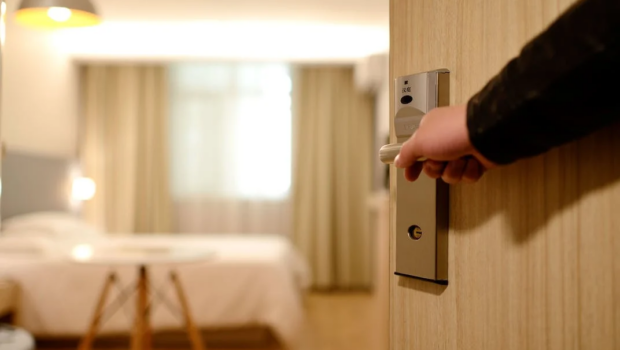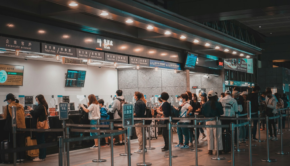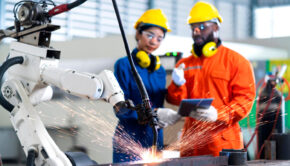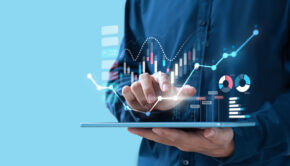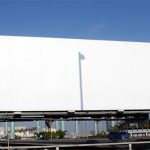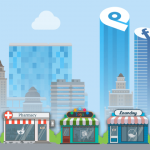Three Ways Technology Is Reshaping The Hospitality Industry
Like every other industry, hospitality management also benefits from adopting cutting-edge technological solutions in today’s fast-paced world. Technology now governs every aspect of modern-day hotels, from front desk to restaurant dining to housekeeping, and for a good reason.
Using cutting-edge hospitality solutions makes managing key functions less labor-intensive, more productive, and seamless, resulting in an overall improved guest experience. Plus, it helps hotel owners stay relevant and keep their competitive edge. The most recent COVID-19 regulations for hotel quarantine also sped up the adoption of hotel technologies.
This article will discuss the top three technologies that are reshaping the hospitality industry.
1. Housekeeping Management System
In a post-pandemic world, the success of any lodging property—be it a hotel, motel, inn, resort, guest house or bed and breakfast, etc.—depends on the level of hygiene and cleanliness it provides to its customers. While your hotel’s front desk is the face of your brand, your housekeeping capabilities make a lasting impression on your guests.
Some of the most crucial tasks of a hotel are performed by housekeeping, such as:
- preparing rooms before the guests’ arrival
- cleaning the floors to maintain a sanitary environment
- doing the laundry
However, delegating tasks to housekeeping personnel requires a systematic approach to scheduling operations, which is not feasible when done manually due to the high probability of human error. Since the number of hotel guests keeps growing, especially during holidays and peak seasons, the housekeeping tasks can be very difficult to manage manually. Fortunately, technological developments have allowed us to use applications for managing these tasks. Such applications also include resort cleaning help, which is crucial in maximizing productivity. Resort Cleaning is one such software that will definitely make the lives of hotel managers easier.
Hotel housekeeping supervisors benefit greatly from real-time visibility of their staff’s availability, performance, and quality. This information is vital to improving efficiency, compliance, and downtime and ensuring high-quality customer service. With all the housekeeping activities listed down to the tiniest unit task, housekeeping software eliminates the need for housekeepers to physically perform quality control checks or keep an eye on guest room inventory. Staff rosters, schedules, and duties are better managed and planned with just a few clicks.
2. Digital Concierge
The hospitality business is dynamic and, therefore, to remain competitive, hotels today must employ the latest technologies to deliver a customer experience par excellence. A digital hotel concierge is one service of this type that is gaining popularity. Many hotels are reportedly facing staff shortages in the wake of the “Great Resignation.” Thus, a digital concierge can be extremely helpful in entertaining requests for late check-ins or early check-outs and taking some pressure off of the front desk.
A digital concierge, also known as a virtual concierge, is a guest-facing technology. It performs basic reception duties, including greeting guests, managing guest complaints, taking messages, managing mail and luggage, and arranging transportation upon visitors’ request. It can also book a table at a restaurant or send flowers to your room, just like a regular concierge would.
Making the guests wait in a long line to ask, “Are children allowed in your on-property spa?” is a surefire way to irritate them. A virtual concierge comes in handy in this situation. It only takes a click or an instant message via a smartphone app to get answers to simple questions. Guest satisfaction increases severalfold when they can solve their problems without constantly bugging the personnel for assistance.
3. Contactless Disinfection
It’s no secret that hotel customers have high expectations for cleanliness and sanitary conditions. The disinfection and sanitization standards have increased significantly ever since the COVID-19 pandemic broke out. With so many people coming and leaving your property, this is one area where you simply cannot cut corners.
Generally more user-friendly than traditional sprayers, electrostatic sprayers are a fantastic way to achieve contactless, 360-degree sterilization. Time and chemical waste and the risk of cross-contamination are just some of the problems that can be avoided by using an electrostatic sprayer instead of the standard “spray and wipe” technique.
Remember the Grade 4 Science chapter on magnets and magnetism? The same concept applies here: like charges repel each other, unlike charges attract. When the disinfectant is sprayed, the positive particles move away from each other and spread in a wider area. Moreover, because most surfaces have a negative charge, the disinfectant adheres nicely to them. This ensures that the disinfectant sticks to the entire surface. This way, you don’t need to wipe it off after application, regardless of the angle from which you spray it, which also stops cross-contamination.
Compared to the traditional spray and wipe method, using an electrostatic sprayer saves roughly 70% of the time and 65% of the chemical. This is important since disinfectants used to sterilize against the COVID-19 virus can be very expensive. Also, electrostatic sprayers do not produce any liquid runoff—and hence, no air pollution—unlike traditional sprayers.
Fogging is another high-tech cleaning technology used in the hospitality industry. It involves cleaning large surfaces by spraying them with a fogging machine. Common fogging methods are:
- Hydrogen peroxide vapor
- Chlorine dioxide fog
- Ozone fog
- Ionization
Like electrostatic sprayers, fogging requires zero contact with contaminated surfaces. However, when using this approach, there are a few things to keep in mind:
- Fogging fills the room with tiny chemical particles and makes the air unsuitable for breathing. Therefore, wearing personal protective equipment (PPE) is necessary during the treatment.
- No one should enter the treated area for at least an hour (more or less, depending on the chemical).
- The process may take one to four hours to complete.
Conclusion
The hospitality industry jumped ahead of the curve and started its digital transformation long ago. However, the COVID-19 outbreak accelerated the process and made digitization necessary across all hotel functions.
Initially, the already-overworked hotel staff struggled to navigate new safety protocols that required them to find ways to incorporate touchless tech in daily operations without compromising guests’ safety. But thankfully, the hotel business showed remarkable adaptability in the face of the new normal, leading to a heightened focus on convenient and contactless customer experience. While the original motivation was to elevate hygiene standards to boost customers’ trust, cutting-edge technologies like the ones mentioned above have redefined the hospitality industry as we know it today.
Cover Image Source

